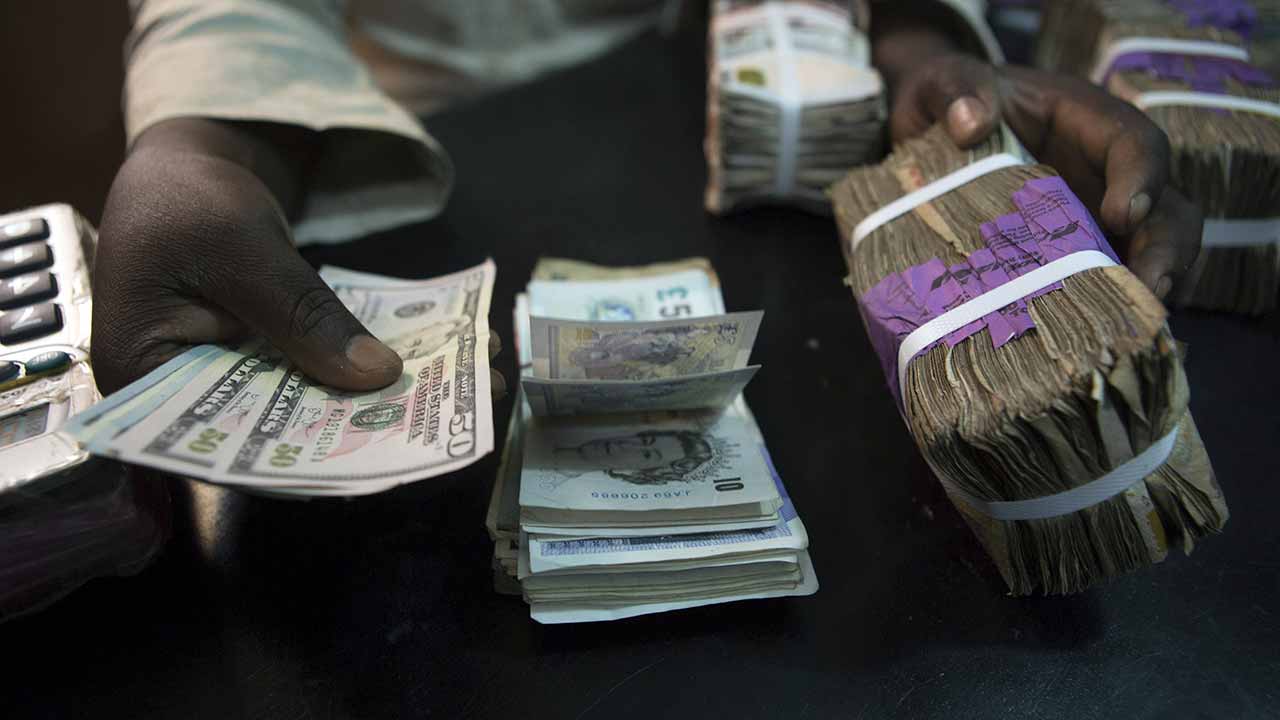There is no respite for the naira as it continued its downward spiral, depreciating to new lows across many markets as continuing Central Bank of Nigeria (CBN)’s intervention failed to stem the fall of the Nigerian currency at the official and parallel markets.
The naira depreciated against the dollar by 0.3 per cent or N1 to N389.50/$ at the official Investors & Exporters (I & E) window.
Activity level at the I & E window also dropped by 33.2 per cent to $130.3 million as Nigeria’s foreign reserves declined by $86.7 million to $36.0 billion at the weekend.
Weekly reviews at the weekend also indicated that naira dropped by N2 to N472.00/$ at the parallel market. At the forwards market, naira weakened against the dollar across most tenors, dropping by 0.3 per cent to N391.38/$ for the one-month, by 0.4 per cent to N395.16/$ for the three-month, by 0.6 per cent to N400/$ and by 1.1 per cent to N418.10/$ for the one-year contracts.
The CBN continued its weekly intervention with its Secondary Market Intervention Sales (SMIS) Wholesale Window, offering a total of $100 million for the week.
FSDH Group attributed the depreciation to “tight liquidity conditions”, referencing the inability of the apex bank to meet forex demand despite its guided exchange rate policy.
After long-running regulated exchange rate policy that created wide gap between official and parallel market rates and fuelled illiquidity in the forex market, the CBN recently backed down and started moves to unify exchange rates by allowing greater market-determined pricing.
Cordros Capital at the weekend noted that the naira may decline further citing widening current account position, currency mispricing, which could induce speculative attacks on the naira, and the resumption of forex sales to the Bureau De Change (BDC) segment of the market which should place an additional layer of pressure on the reserves as the apex bank.
Afrinvest criticised the silence of the apex bank on its exchange rate policy and capital controls that have restricted the exit of foreign investors, after the apex bank ended its policy meeting last week with a decision to retain all monetary policy rates.
“Our opinion is unchanged from our previous updates on the MPC meeting as monetary policy remains inconsistent and there is a lack of proper guidance,” Afrinvest stated.
Senior Research Analyst, FXTM, Lukman Otunuga said forex performance as well as related crude oil prices, China’s economy and global relation between United States and China will influence Nigeria’s growth outlook.
In its outlook for the second half of 2020, Afrinvest noted that with the onset of COVID-19 pandemic and high forex volatility, inflationary pressures have intensified. Analysts expected these to continue to fuel inflation.
“The impact of exchange rate devaluation from N307.00/$1.00 to N360.00/$1.00 in the spot market and N360.00/$1.00 to N380.00/$1.00 at the I & E FX window, FX scarcity and the value added tax (VAT) increase should drive consumer prices higher. Consequently, we project an average monthly inflation of 12.8 per cent in 2020,” Afrinvest stated.









